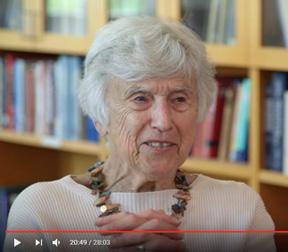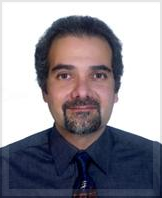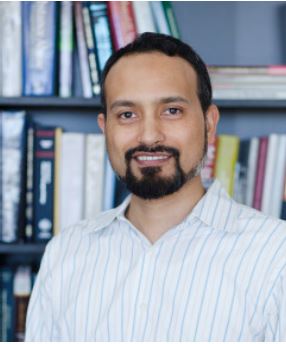

Rosemary Fama, INS Newsletter EditorRosemary Fama, INS Newsletter Editor
It is my pleasure to introduce the new INS newsletter – where members will be able to engage in dialogue with each other between meetings, be informed of upcoming conferences, noteworthy papers and articles, colleagues in the news, audio and video interviews with significant contributors to our field, and much more. With the forthcoming launch of the new INS website in 2017, we hope that this newsletter will provide a platform where members can contribute directly to its content, share ideas and comments, and create open discussions on topics of interest to researchers, clinicians, and educators of brain-behavior relations across disciplines and levels of expertise. We anticipate opportunities for interested INS members to curate special sections within each newsletter.
As editor of this member-driven newsletter, I invite and encourage you to tell us what you would like to see in the forthcoming issues. Please send your thoughts, comments, or questions to me by replying to this email, or at rfama@stanford.edu.
Click here to renew your INS Membership
If you have forgotten your login information, you can email
the INS office and they can help you: INS@utah.edu


INS President Kathy Haaland Introduces: Oral History of Neuropsychology: Videos of Influential Neuropsychology Leaders
2017 is the 50th Anniversary of INS, and in celebration the
INS Board of Governors has initiated the “Oral History of Neuropsychology” Program as seen by Influential Neuropsychology Leaders.
To read Dr. Haaland’s entire introduction of this video
series and view Dr. Lezak’s interview:


Omar Alhassoon, Associate Editor for International Affairs
Rosemary Fama and I would like to welcome you to the first issue of the new INS newsletter. As the Associate Editor for International Affairs, my role will be to encourage and assist my colleagues from all over the world to share their experience and contribute to the section of this new newsletter that will focus on international exchange.
I want to reiterate what I have said before in INSNET. This is an exciting time to be involved in international work in neuropsychology. As a field we have recognized and incorporated into our armamentarium the subtleties of cultural, linguistic, educational, and other contributing factors that influence brain-behavior relationships.
As an organization we have succeeded in involving colleagues from remote regions of the world in our mission. There is more work to be done. Our success has mainly been in affluent nations with relatively well-formed neuropsychological communities.
The next step is to help countries that do not have neuropsychological research or services in developing these capacities. We need to reach out to potential colleagues from less represented countries. These countries often have significant barriers making it harder for them to reach out to us. They often are either experiencing turmoil or poverty preventing them from easy travel. Stringent visa requirements make it difficult to attend conferences and meet colleagues. However, the internet, specifically social media, has allowed many scientists from these regions to overcome some of these barriers.
In the first issue of INSNET (Winter 1996), the mission of the newsletter was identified as an attempt to “expand interactions to neuropsychologists in all parts of the world.” The format was conceived as dynamic and ever changing “as we learn and grow.” Rosemary Fama, the editor of the new INS newsletter, and I will follow in the footsteps of our predecessor and make the newsletter ever more dynamic, allowing it to cross the physical borders of nations and the barriers of language and culture.
We envision the newsletter as a more interactive medium; where contributors can publish articles that can be commented on by the readership from all over the world. Given the technology available at our fingertips, we would like automatic translation to be available with a push of a button for readers who prefer to read the newsletter in other languages.
Monitoring the feedback from the readers and responding to their needs and preferences will be accomplished by creating social forums associated with the newsletter and by using website analytics. Since mobile technology such as tablets and smartphones are more commonly used to browse the internet in many less wealthy countries, we want our newsletter to be readable on both computers and mobile devices.
Rosemary and I would like to invite all of you to contribute to this new newsletter. We are both looking forward to developing conversations that are of interest to the whole organization. Please, do not hesitate to contact us at oalhassoon@ucsd.edu and rfama@stanford.edu.


Omar M. Mahmood, PhD
In recent years, healthcare providers and academic researchers based in the Middle East have begun to increasingly recognize the importance and utility of neuropsychological assessment. Due to the prevalence of medical conditions that directly affect neurocognition (e.g., traumatic brain injury, stroke, neurological disorders associated with an aging population), Arab physicians have begun to seek out evaluations of cognitive functioning to characterize patients’ current functional status and to aid in the formulation of treatment recommendations.
Click here to read the full article by Omar Mahmood, or
click here to see the INSNET Archive.
Students, join the SLC Facebook page!
Now is the time to familiarize yourself with the candidates for the INS Board of Governors and to VOTE. Within each category, candidates are listed in alphabetical order. To read each candidate’s bio, visit this page: www.the-ins.org/2017-candidates. Voting closes on Sunday, November 20.
In a fitting 50th Anniversary tribute, INS will return to New Orleans this February — the same city that hosted the first INS Annual Meeting in 1973! We hope you will join us at the 45th Annual Meeting in New Orleans, Louisiana this February 1-4, 2017 for another exciting program.
Visit the New Orleans page on the INS Website for complete details and to start making your travel plans.
You can receive Continuing Education credit(s) for reading select JINS articles online. Earn anywhere from 1 credit hour for a single article, or up to as many as 11 credit hours for reading the Special Issue on Human Brain Connectivity. INS members receive a discount!
New membership benefit! INS members are eligible to register for the International Brain Injury Association’s 12th World Congress on Brain Injury, March 29 – April 1, 2017, at the reduced IBIA member rate. Visit www.ibia2017.org for more information.
ATTN: Neurology Admin/INS
175 N. Medical Dr., 5th Floor, Salt Lake City, Utah 84132, USA